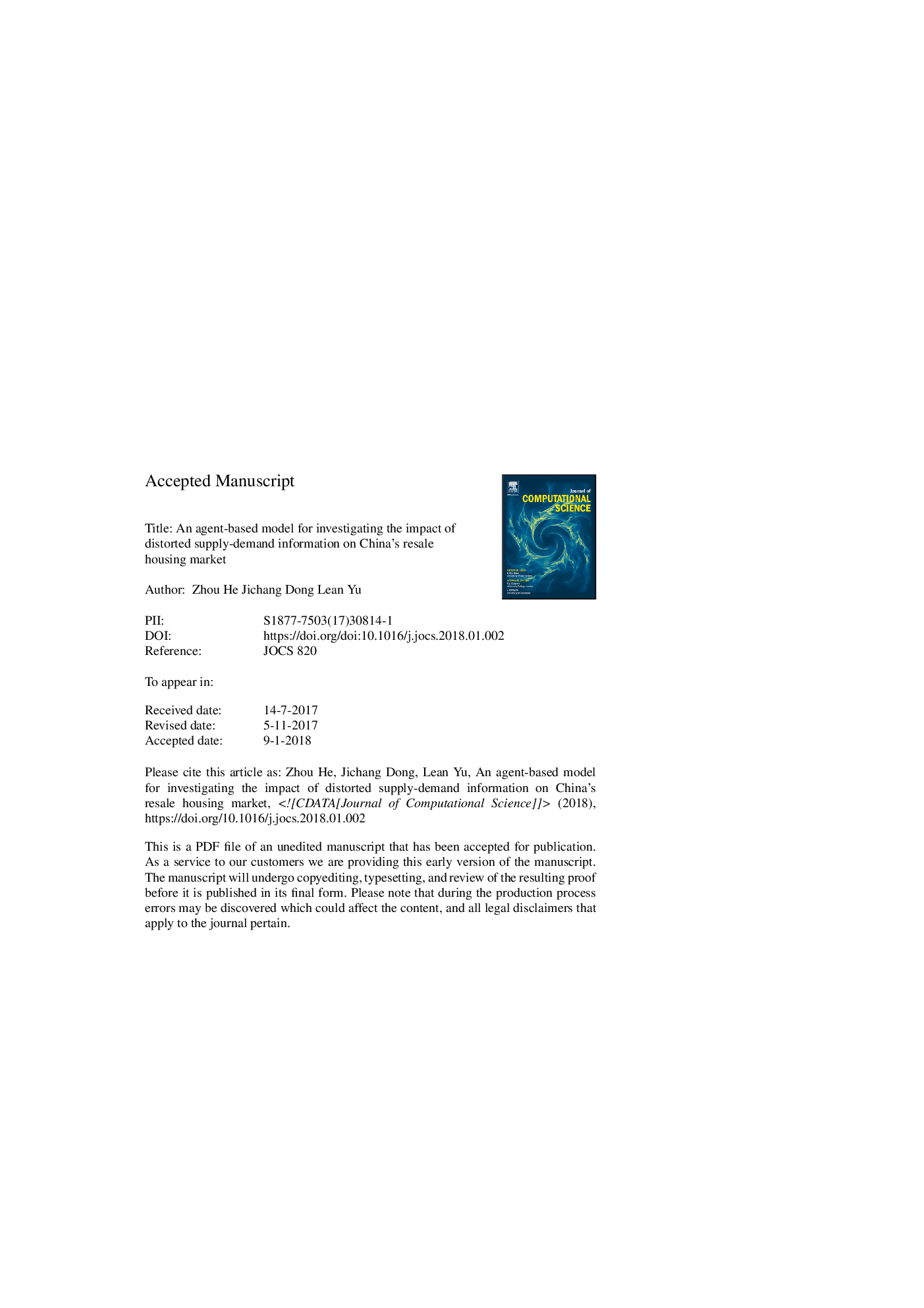| Article ID | Journal | Published Year | Pages | File Type |
|---|---|---|---|---|
| 6874376 | Journal of Computational Science | 2018 | 43 Pages |
Abstract
Trading participators suffer from information disadvantage in China's resale housing market, where brokers are able to distort supply-demand information and thus mislead their clients in price negotiation. In this paper, we propose an agent-based resale model to examine how brokers' distorted market information affects the market performances. Experimental results show that brokers are truly able to influence market trade count, resale price per size, and the benefits and costs of buyers and sellers. We find that no matter what the actual market condition is, assisting sellers is always the dominating policy for rational brokers. We also find that both buyers and sellers are likely to gain more surplus from transactions if they sign an “Exclusive Right To Buy/Sell” agreement with the broker, but the sellers are less bothered by the increased trade time. Coupled with these findings, managerial implications are discussed for China's resale housing market.
Keywords
Related Topics
Physical Sciences and Engineering
Computer Science
Computational Theory and Mathematics
Authors
Zhou He, Jichang Dong, Lean Yu,
